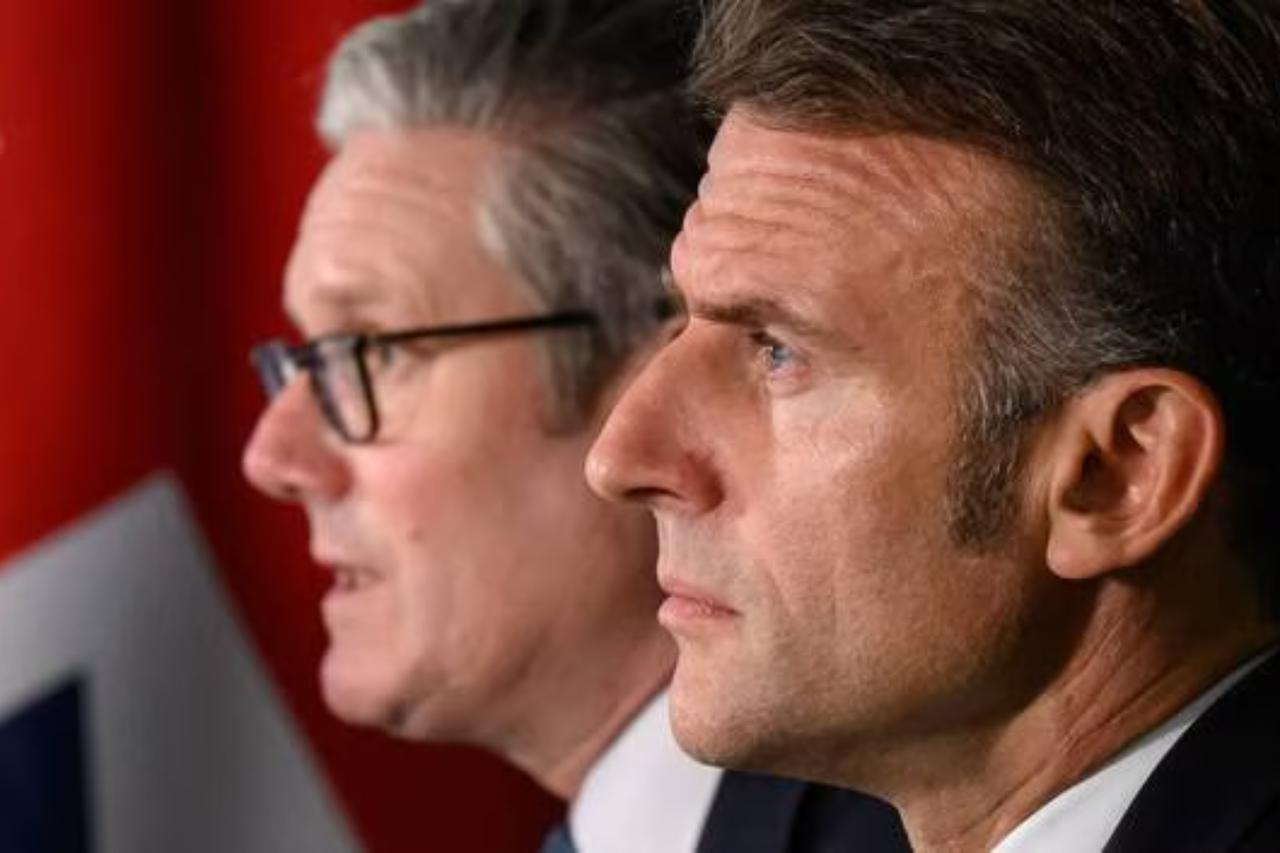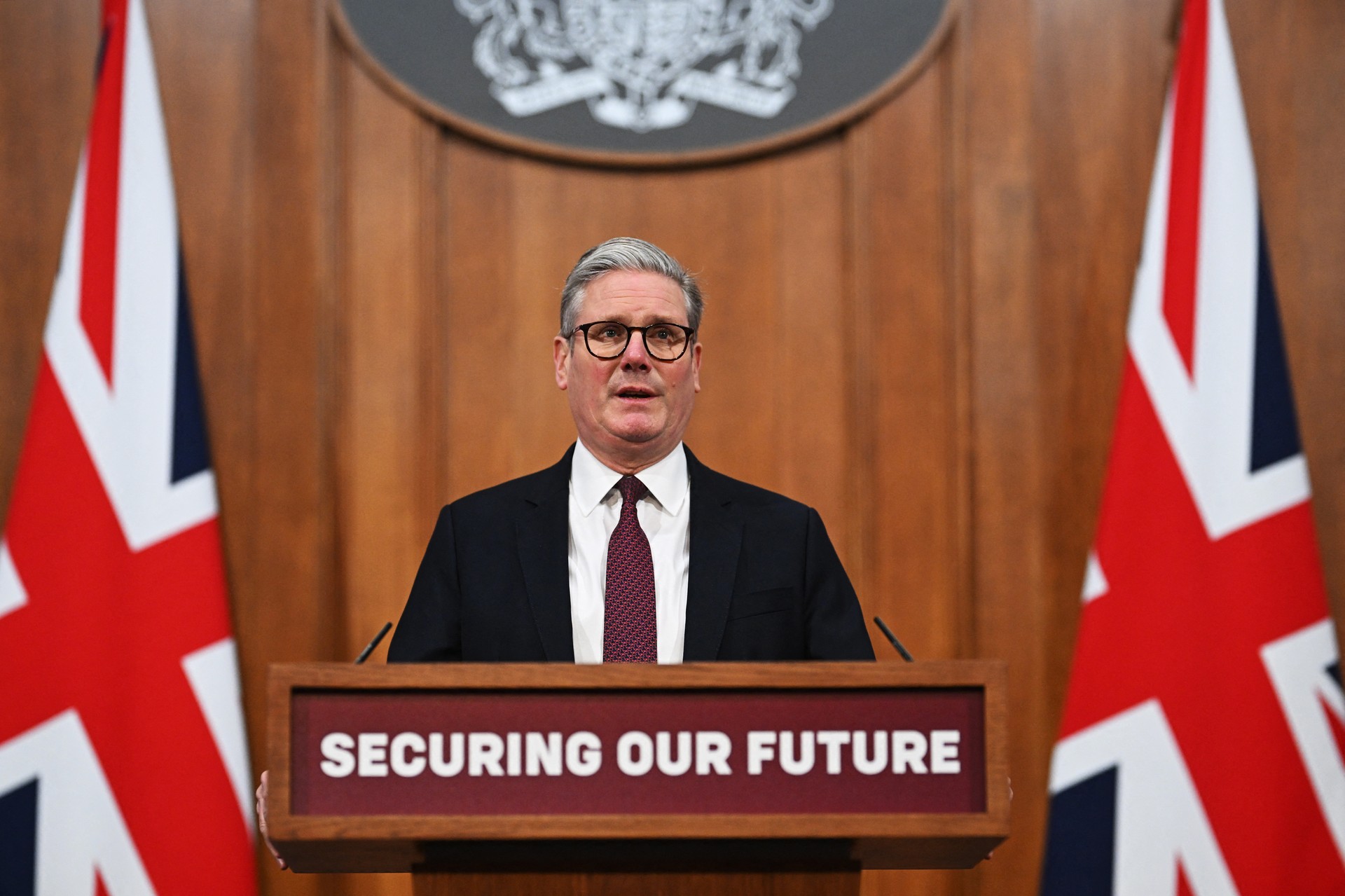
The United Kingdom’s recent declaration that it may recognize a Palestinian state if Israel fails to alter its course in Gaza and the West Bank reflects a notable shift in Western diplomacy. Long aligned with Washington’s Middle East policy and supportive of Israeli security priorities, London now appears to be reassessing its positioning—alongside France—as part of a broader European recalibration.
Although the U.K. stopped short of immediate recognition, its conditional statement marked a departure from its previous posture, which emphasized Israel’s right to self-defense and remained closely tethered to U.S. diplomatic lines.
France’s parallel signals—following earlier moves by Norway, Spain, and Sweden—suggest a growing European discomfort with the trajectory of Israel’s military campaign and its humanitarian consequences.
This shift is not occurring in a vacuum. In recent months, France, Germany, and the U.K. have intensified efforts to coordinate foreign policy more autonomously from the United States. While Washington remains the primary actor in Middle East security guarantees, especially vis-a-vis Israel, European capitals are increasingly inclined to differentiate their positions, particularly as the humanitarian costs in Gaza mount and public opinion across Europe grows critical.
European officials are also aware of the long-term reputational risks. Should international legal mechanisms—including proceedings at the International Court of Justice and the International Criminal Court—advance with findings implicating Israel in crimes against humanity, allied governments that have continued material or political support could face scrutiny. For the U.K. and France, preemptive diplomatic signaling may serve as a form of risk management as well as a shift in moral calculus.

More than 60,000 Palestinians have been killed in Gaza since October 2023, and hunger is now at the center of international concern. While early phases of the conflict were framed by Western governments as Israel’s legitimate response to Hamas attacks, the narrative has changed due to the protracted use of siege tactics and the weaponization of food access.
The United Nations has repeatedly underscored that starvation is being used as a method of warfare, language that now carries legal weight. The U.K. and France, though initially slow to respond, now face mounting internal and external pressure to distance themselves from a crisis many increasingly see as unsustainable and morally indefensible.
The change, however, seems to come at a time when even some Israeli officials and media figures started to object to the size of the catastrophe.
That the U.K., whose 1917 Balfour Declaration paved the way for Israel’s creation, now finds itself contemplating Palestinian statehood recognition is not lost on regional observers. Britain’s historical role in shaping the Israeli-Palestinian conflict gives its current position added symbolic weight. Recognition, even if conditional or delayed, would mark a reversal of a century-old trajectory.
France, too, has long walked a tightrope—balancing its strategic interests in the Levant with its historic engagement with Arab actors. Both countries’ statements now reflect a recognition that continued support for Israeli policies may undercut Europe’s normative commitments and invite reputational costs.
Still, recognition alone—particularly absent enforcement mechanisms—may do little to alter the facts on the ground. Israel’s settlement expansion, annexation rhetoric, and siege of Gaza are proceeding irrespective of diplomatic shifts in European capitals.
Israeli officials were quick to reject the U.K.'s position. The Foreign Ministry labeled the move as “a reward to Hamas” and claimed it would undermine cease-fire efforts. Similar rhetoric followed French President Emmanuel Macron’s earlier comments on Palestinian statehood.
Such framing is consistent with longstanding Israeli efforts—backed by U.S.-aligned think tanks such as the Heritage Foundation—to depict criticism of Israeli policy as tacit support for terrorism. Over the past two decades, media and lobbying ecosystems in both the U.S. and Europe have often conflated advocacy for Palestinian rights with extremism, applying pressure to governments and public figures alike.
Yet this narrative appears to be losing traction. Civil society groups, human rights organizations, and even segments of Israeli public opinion have begun to reject the framing of all criticism as anti-Israel or pro-Hamas. In recent weeks, two prominent Israeli nongovernmental organizations (NGOs) publicly accused the government of committing war crimes in Gaza, citing the deliberate targeting of civilians and the blockade of humanitarian aid.

One of the key questions raised by London’s conditional approach is whether Palestinian statehood is being treated as a principle or a bargaining chip. The U.K.'s position, that it would recognize Palestine only if Israel refuses to implement a cease-fire, suggests that recognition is still subject to tactical considerations rather than international law or rights-based norms.
Critics argue that if recognition is morally or legally justified, it should not be contingent on short-term Israeli decisions. Nonetheless, even symbolic moves, particularly by states with historical and geopolitical weight, may shift the diplomatic landscape, especially if they pave the way for economic or legal consequences.
While Israel’s military capabilities are overwhelmingly sustained by U.S. defense exports (accounting for approximately 95% of its imported munitions), its economy is deeply tied to European markets. Roughly 60% of Israeli trade flows through the European Union and the broader Western bloc. For this reason, many believe that meaningful policy change in Israel may only occur if diplomatic statements are followed by economic pressure.
European powers have historically avoided such measures. But if recognition of Palestine becomes part of a wider push, including trade restrictions or targeted sanctions, it could challenge the Israeli government’s domestic standing. Successive polls have shown that while Israeli voters are divided on the future of Gaza and the West Bank, they are unified in prioritizing economic security. A threat to that pillar may ultimately become the most potent external lever for change.
Whether the U.K. and France’s positions signal a genuine turning point or a tactical adjustment remains to be seen. On their own, recognition statements will not stop Israeli airstrikes or open Gaza’s borders to aid. But they do suggest that a growing number of Western states no longer view unconditional support for Israel as sustainable.
For now, recognition remains largely symbolic, but symbolism matters. If followed by coordinated diplomatic pressure, legal action, or economic consequences, it may eventually translate into new political realities on the ground. What happens next will depend less on announcements and more on whether Europe is willing to attach consequences to its shifting rhetoric.